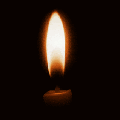
Rick Rubin: The Creative Act: A Way of Being (2023, Penguin Publishing Group, Penguin Press)
From the legendary music producer, a master at helping people connect with the wellsprings of …
The audiobook is a good companion for the receptive artist
5 stars
I really liked listening to the audiobook version of this read by the author. I think it's just really striking hearing his words in his own voice and giving the kind of emphasis he intended for each of the points in these short chapters. Not sure it would come across with quite as much impact reading what he wrote as words on a page. The author is best known for his place in the world of music as a producer and record company executive, but the book is really intended for an audience of creative people of all kinds. The idea goes far beyond the idea of just making music or generating new ideas or collaborating with others to produce art. The author's many years of developing the work of artists has made him think hard about what the point of art is in the first place, and the answer is not just getting paid for creating new things. He really seems genuine when he talks about what drives someone who has an artistic bent, it's not just something that he's learned to make up while dealing with musicians. He doesn't really make a big deal of his association with the famous in the studio or deciding edits on half-finished work or figuring out when it was time to stop tinkering with a song. So it isn't packed with memoir type anecdotes with big name musicians here. Everybody's heard about the artists with huge egos, those who drove themselves to madness, even suicide, those who committed terrible things believing them as measures necessary to continue to create art. Rather than sensationalism, it comes closer to asceticism to unlock the springs of creativity. Some people say that he's trying for a popular work of spirituality or philosophy as its guru, but he explicitly states that not everything he proposes will work for everyone. He's worked with so many different kinds of artist he knows it's futile to come up with a single prescription that'll work in every case. He lists the biggest kinds of obstacles and pitfalls that people encounter and he calls those out for people who want to avoid them in the first place. I didn't mind that a lot of the remedies are things found in other self-help, productivity, or wellness works. They don't have to be original tips to work. He gives really interesting clues on how an artist can focus on stripping things down to the essence, the way a producer cuts out unnecessary part of a mix, to get to the core of their message.
I keep a snapshot of the chapter titles in this book as a reference to dip back into this audiobook in the future when putting together my own work. I think anyone who has an artistic vision, whether in performance, or writing, or visual art can gain something by from this book and adapting some of his principles to their art. The spiritual overtones are not essential if that's not their vibe, but if they find even one bit of advice that is useful, latch onto it, leaving the rest, the book has accomplished its goal. Other books of this type like to hammer on just one simple formula and promise results automatically, without any work by the reader. This author instead says that the artist is key in choosing the appropriate starting point, with an open mind, to do great things, and I appreciate it.

